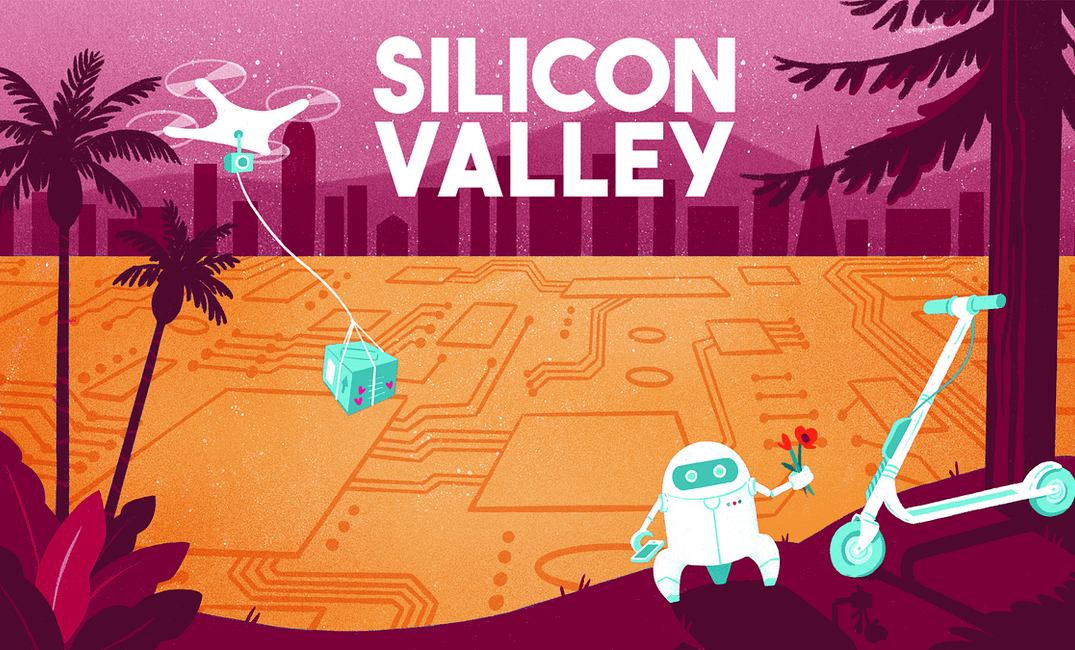The Weirdest Shit to Come Out of Silicon Valley
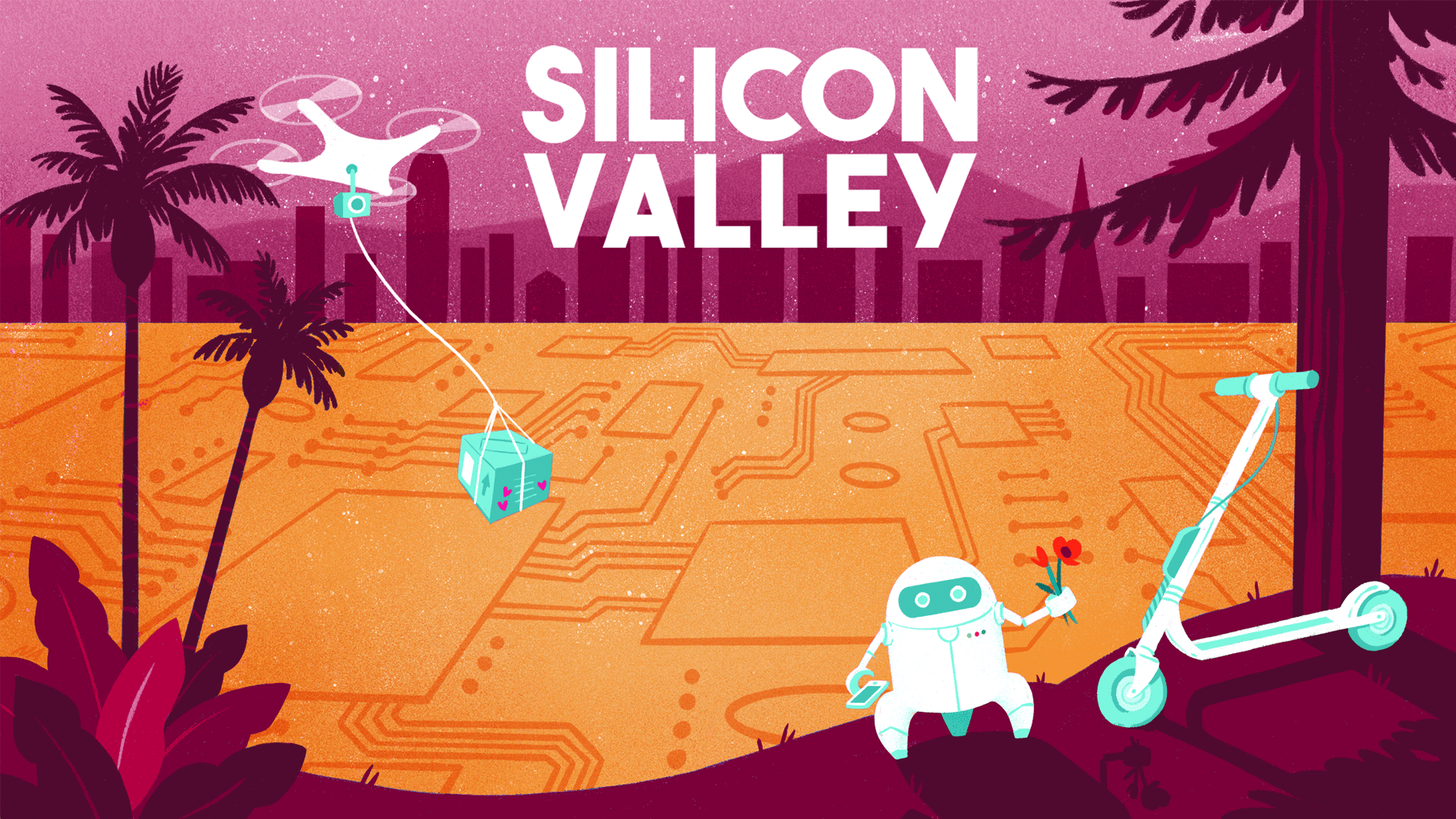
Hail to the summer edition of Two Truths and a Lie, Silicon Valley Startup Edition. Out of the following three startups, which is the fake one? One that rents puppies for four-hour segments. One that gives you access to public toilets via an app. Or one that uses nose recognition to find lost dogs. (Scroll to the bottom for the answers.)
Now it’s time to dive into the strange stuff coming out of the valley this past month. Notably not on the docket is Neuralink, a brain-implant startup that lets you control computers with your mind—because anything Elon Musk does has already gotten enough news coverage.
Know of some ridiculous stuff happening in August? Shoot me a message to include it in next month’s edition.
Smell Like a Gamer: Xbox’s Three-in-One Body Wash
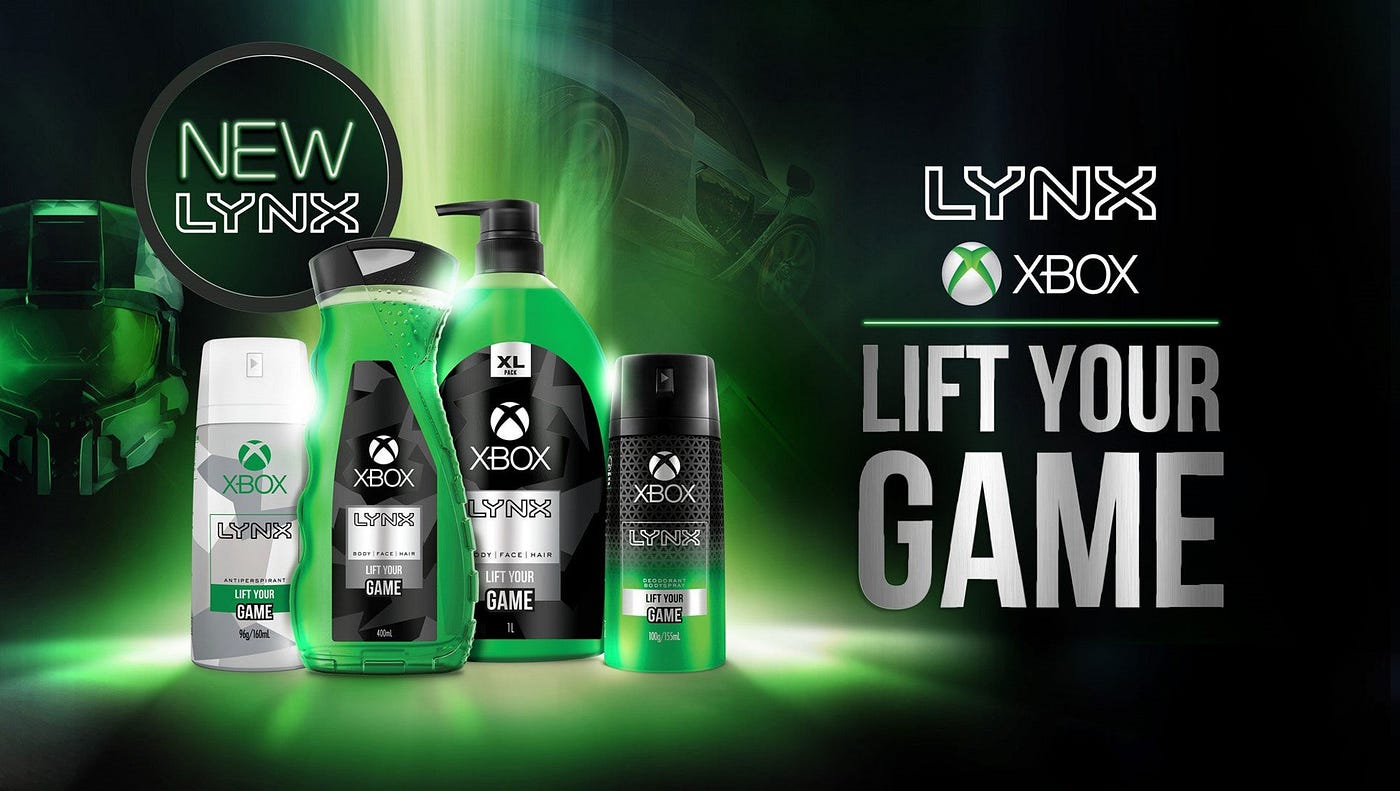
In June, Microsoft surprised and confused the world when it announced a partnership with men’s-care brand Lynx, known as Axe in America — yes, the scent teenage boys are obsessed with dousing all over their bodies before school. The line is targeted at gamers and includes three bathroom products—a body spray, a deodorant, and a three-in-one shower gel — all in luminous lime-green packaging to let people “power up” before starting their day.
Apparently, smelling like a gamer doesn’t mean smelling like clothes worn in a basement for too many days; instead, it’s a “fresh scent of pulsing green citrus, featuring top notes of kaffir lime and winter lemon, aromatic herbal middle notes of mint and sage, and woody bottom notes of patchouli and clearwood.”
This ultra-desirable body wash is now available for purchase in Australian and New Zealand stores. VICE writer Nicole Carpenter, who gave it a fair shot, wrote that “bright green is ubiquitous with Xbox…but it’s most reminiscent of nuclear waste.” Admittedly, as a woman, she’s not among the pool of Xbox’s average users, 58% of whom are men with an average age of 33.
Hey, as long as gamers wash, that’s a start, right? (Just kidding.)
The Evil Genius of Uber Eats’ Dine-In Option for Restaurants
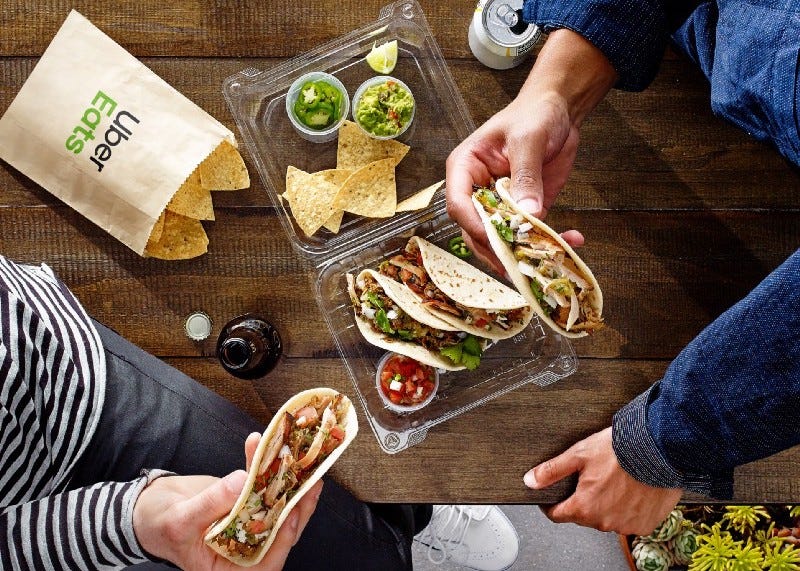
We’ve come full circle, automating the process of ordering food to our doors to such an extent that people want to go back to restaurants again. But there’s a twist: millennials are so used to interacting through screens that the idea of a server or waiting for an unknowable amount of time for your check seems unbearable.
Someone behind Uber’s evil-genius algorithmic programs figured this out and came up with a perfect solution for introverts: Uber Eats dine-in ordering. Now you can order from your favorite haunt through the app. And here’s the evil-genius part: you go to the actual restaurant you ordered from and sit down and eat your order there.
The good news is that you get rid of the delivery and service fees; the bad news is that if you use this, you’re kind of an asshole. So far it’s available only in Austin, but—I’m not going to lie—I would happily play ball when it starts testing in San Francisco. Uber is not the first company to think of this — the startup Allset does this too — but the ride-share company has the reach needed to really make this thing happen.
Virtual Reality, Meet Massages
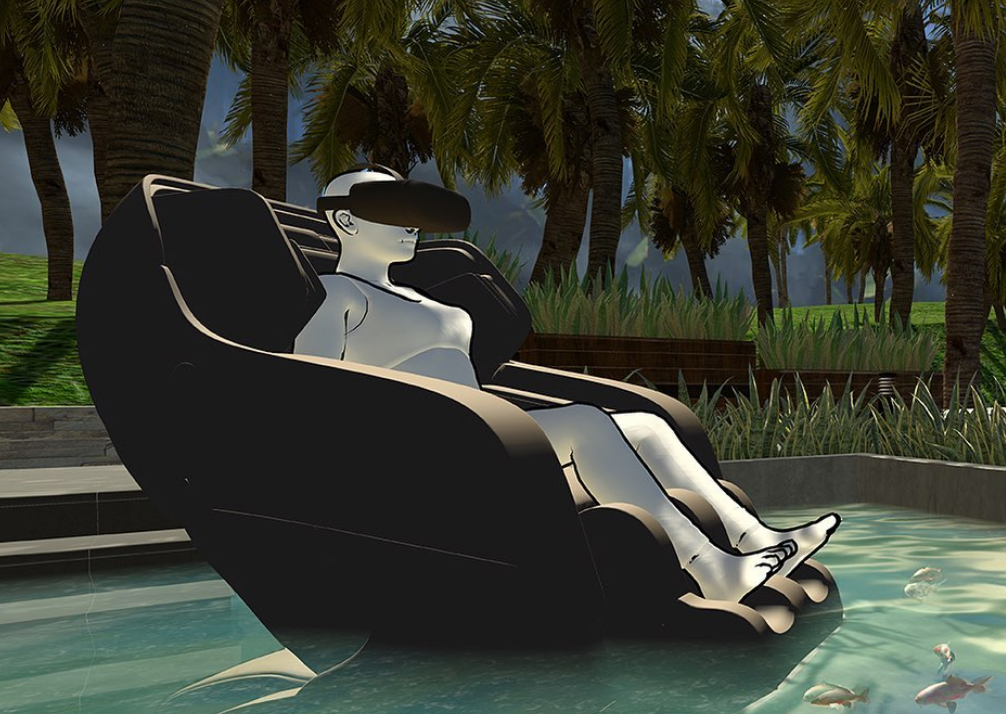
In Los Angeles, Esqapes Immersive Relaxation (not a typo) is a brand-new company that promises to combine virtual reality and massages, two of my favorite things. Founder Micah Jackson wants to create the “spa of the future” after he apparently resigned from NASA’s Jet Propulsion Laboratory to enter the VR spa space, a move that baffles and upsets me on so many levels.
The concept: you shell out $45 for 30 minutes inside one of 10 custom experiences, with your head encased in a VR headset and your bum in a massage chair. Plus, you can add another $5 for heat therapy. There’s no brand name for the headsets provided, which makes me worried about the resolution quality. But to be fair, the chair does look substantial.
Once encased, you pick your own experience, ranging from “comfortably resting in a koi pond, located in the middle of an island paradise” to sitting in a floating cabana surrounded by “a vanilla sky.” The massage is an 180-degree-ish experience: your back gets rolled; fire crackles or dolphins cackle in your ears; and the scent of jasmine or lavender wafts into your nostrils (I think they spritz some perfume, but I can’t tell).
Four years ago, this might have been cool. Even two, perhaps. But now, when VR headsets are so widely available — and much more affordable — it seems like your money would be better spent on an actual massage, you know?
Your Payment App Wants You to Smile

When I unlock my iPhone with the facial-recognition feature, my rose-tinted view of my appearance can give me a shock. It recognized me when I look like this today? As facial-recognition use grows, this reaction has become more widespread.
In China, which already has a Black Mirror-like — but real — system in which people with poor ratings are not allowed to travel, how we react to our own faces is causing a problem. At least, that’s how Alipay, the payment app for wholesale giant Alibaba, sees it. To help prevent fraud, it has integrated Smile to Pay facial recognition payments for more than 1 billion users.
But this hasn’t been going so well for Alipay. Users had a visceral reaction to their unfiltered image, complaining that they looked ugly. It was the camera’s fault, they said, as 60% felt that they looked worse on Alipay than on their regular photo app. Engineers quickly rectified this by rolling out beauty filters, so every time you pay with your face, you look pretty, as Alipay announced on Weibo. The company hopes you’ll be so distracted by your face that you’ll forget how much you dropped on some consumerist piece of crap. I’m not even going to unpack the sinister feel of a payment provider in China that insists that users “smile” to access their own money.
Dungeon Masters Are Making Bank

With the emphasis on taking life offline, the rising popularity of Dungeons and Dragons has spawned a surprising superstar: the paid dungeon master.
You don’t have to deal with your mate scrambling through the manual to describe your next move; you can have a paid professional oversee the whole shebang. In San Francisco, paid dungeon masters add to the atmosphere with ocarina and flute music streaming over Spotify, while bubbling drink “potions” create that goblin-infested sense of whimsy.
Dungeon master Devon Chulick charges $300 to lead a beginner campaign; for $500, he’ll lead it in your office. His regulars consist of Google employees and tech bros, but he also hosts birthday parties, bachelor parties, and more.
You could do this yourself, but the same could be said of cuddling, personal trainers, manicurists, and stretch specialists. As geekery goes, why not have someone who knows more than you do lead you through the experience? It makes sense—you want to battle barbarians and cast spells, not read a big-ass manual and have a study session.
And if enterprising dungeon masters can make some money off of their skills, well, that’s the type of spirit that created the game to begin with.
Screen-Free Parenting—for a Price
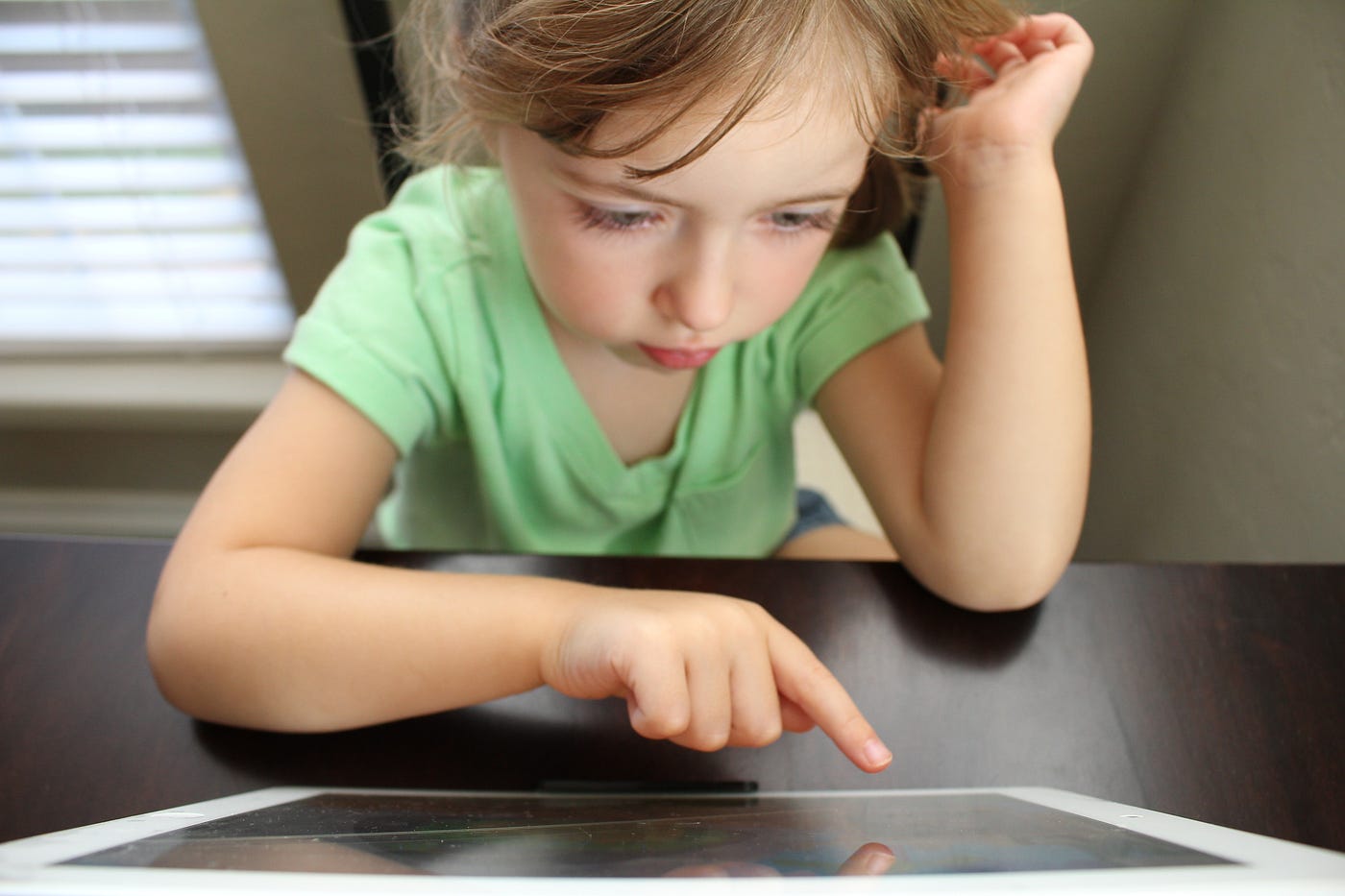
When it comes to young minds and screens, there’s a new level of crazy. Enter the screen-free parenting coach. And this is not just a Silicon Valley thing. From Ohio to Seattle, an army of screen monitors exists to coach your kid away from the web, with many charging $80–$250 an hour for eight to 12 sessions. Maybe in this era of empowered parents having someone else be the bad guy is the allure?
Even more bizarre is the screen-abstinence pledge. Yes, what was once a creepy “true love waits” promise ring and purity ball ceremony has evolved into a promise to avoid tech. “Make smartphones the exception, not the rule,” reads one pledge website. Get support in a “public promise to delay giving a smartphone to your child until at least eighth grade in an effort to alleviate the social pressure to have a smartphone for parents and for kids,” reads another. It’s not only parents and children; many Silicon Valley nannies sign contracts that include no-phone clauses.
The Baby-Food Smugglers of Silicon Valley

There’s nothing a parent won’t do for their child, even if it means sourcing illegal, non-FDA-approved baby food and formula from Europe and smuggling it into the country. That is, if you’re a Silicon Valley parent with pre-K admissions and Chinese-language lessons in your darling’s near future.
Most black-market baby food hails from Germany, from companies like Holle and HiPP, according to Today’s Parent. The allure is that it’s organic, non-GMO, without added sugars, and supposedly better for sensitive children — as in, kids who seem to vomit up everything.
There’s an underground economy devoted to sourcing this: parenting forums, local messaging groups, and playground chatter. Many “users” start when these brands are recommended to them, then freak out when they discover that they’re not available stateside. One mom, speaking to the San Francisco Chronicle, likens “standard US formula to supermarket beef, and Holle and HiPP to organic, grass-fed, locally sourced steaks.”
The non-FDA-approved thing doesn’t mean that these imported baby foods are bad; the FDA has famously long wait times for approval. It only means that the baby food has to be imported, which makes it a lot more expensive—in one case, approximately 47.5% more, according to the Chronicle.
To be sure, getting access to this formula is a privilege, but there’s no real harm done if a mom goes all out. But it can create a shame spiral for moms who don’t go the extra mile.
Answers to Two Truths and a Lie: The puppy-rental startup is the fake one. Chinese startup Megvii is working on nose recognition for pups. And Good2Go offers access to toilets in participating locations through its app.



